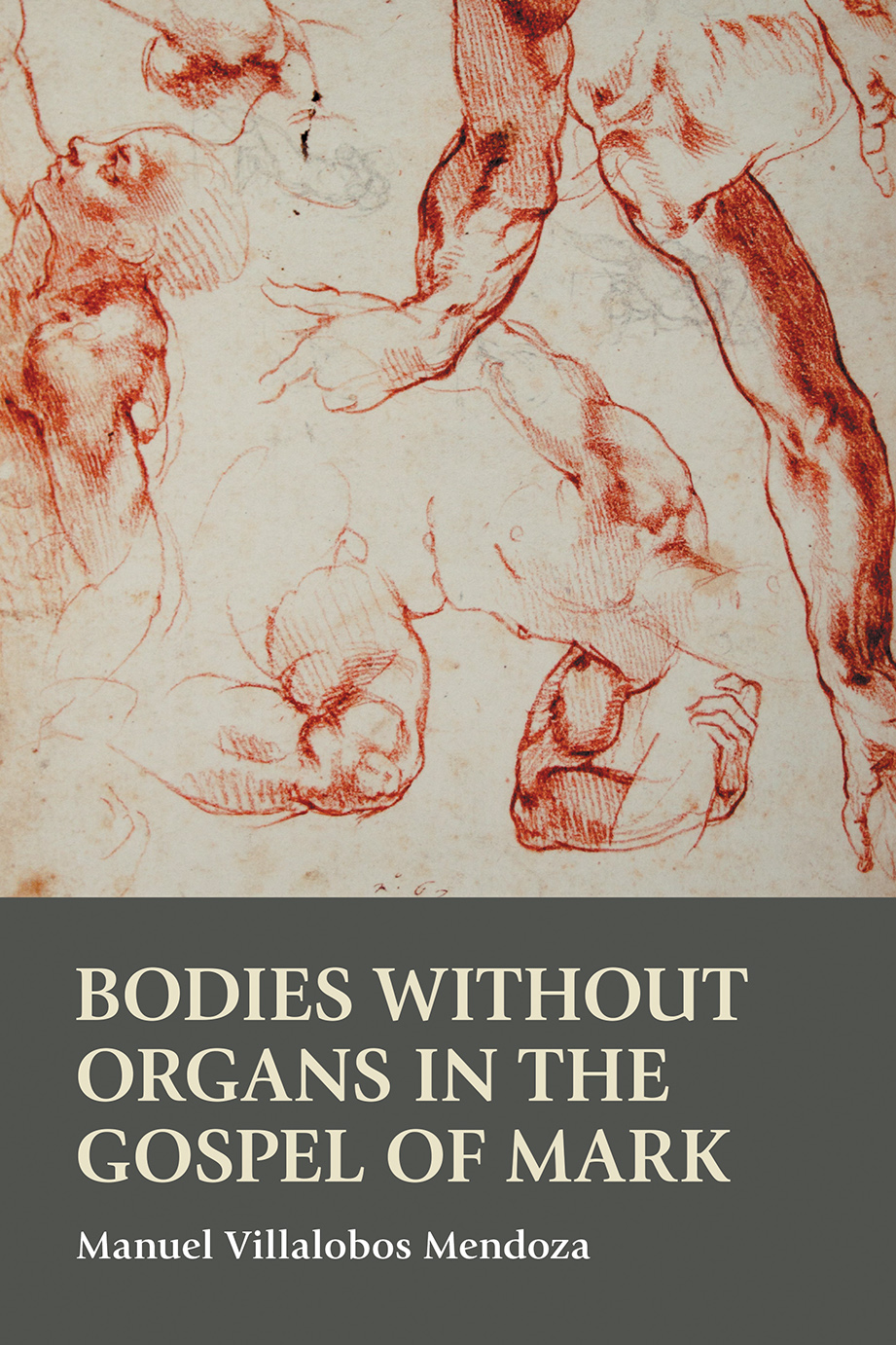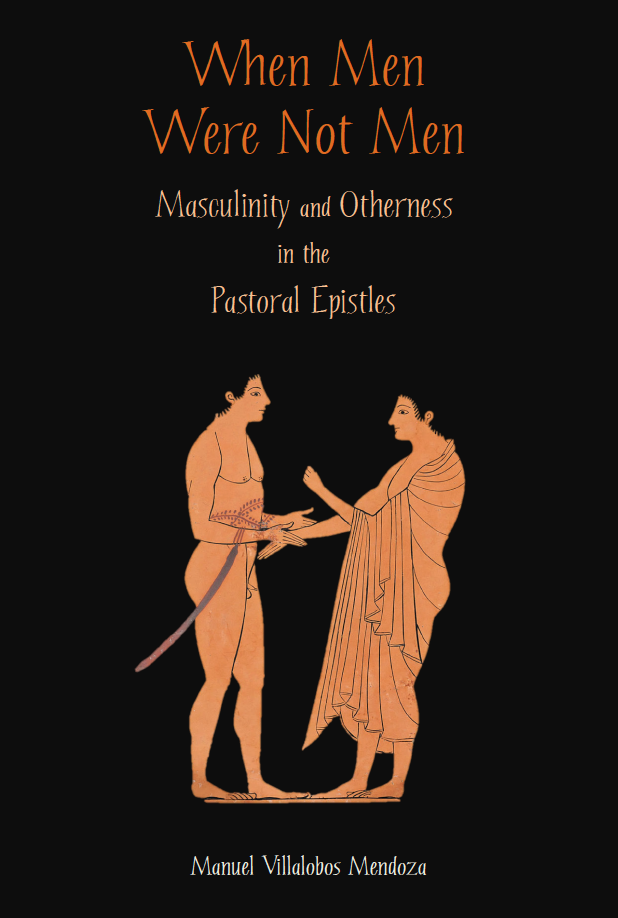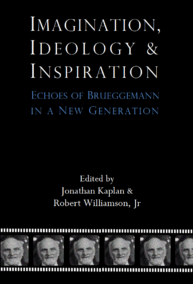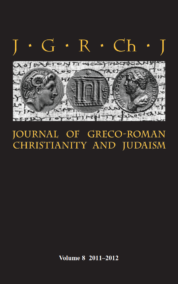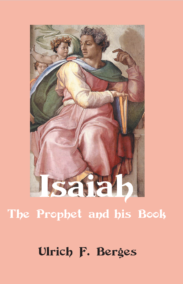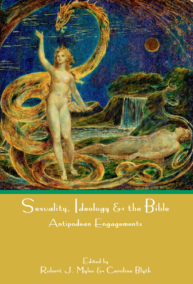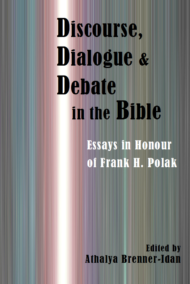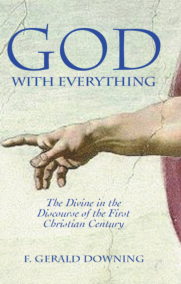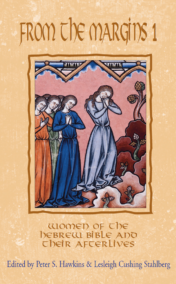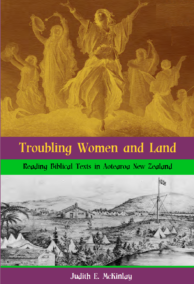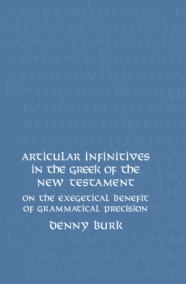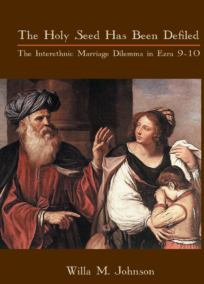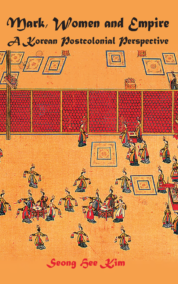Bodies without Organs in the Gospel of Mark
Published: Aug 2022
£50.00
In this stimulating monograph, Villalobos Mendoza leads the diligent reader to a re-appreciation of Mark’s Jesus as an enabler of human freedom. The freedom that ought to be every human’s birthright is, we know, everywhere constrained by custom, regulation and law. But for the Jesus of Mark, order itself is disruptive, boundaries are transgressed, hierarchies are dismantled, and the bodies of humans, animals and trees are interconnected.
Villalobos Mendoza—taking his theoretical inspiration from the philosopher Gilles Deleuze—proposes Mark’s Jesus as the first figure to accomplish the ‘Body without Organs’ (BwO), the one who frees us from the oppression of the priest / institution / power / hierarchy. According to Deleuze, ‘the body is the body / it is all by itself / and has no need of organs / the body is never an organism / organisms are the enemies of the body’. This notion is helpful for understanding Jesus as the BwO, how Jesus’ body affects other bodies, and how those bodies function (or assemble) as an interkingdom of no-bodies.
The analysis of several Markan texts (Mk. 3.20- 35; 6.1-6; 1.12-13; 13.32-35; 14.27; 11.12-14; 14.51-52; 15.42-47; 16.1-8), is done through the interpretative lens of Deleuze and Félix Guattari whose co-authored works deliberately self-create new philosophical constructs, alongside BwO, such as: ‘any-space-whatever’, ‘de-re-territorialization’, ‘assemblage’, ‘rhizome’, ‘threes’, ‘Becoming(s)’, ‘interkingdoms’, ‘affects’, ‘people-yet-to-come’, ‘nomadism’, ‘eternal return’, ‘repetition’. By putting into dialogue insights from Deleuze and the Markan Jesus’ understanding of the kingdom of God, Villalobos Mendoza suggests the character of Jesus as the exemplary opponent of the apparatus of state which: organized, signified, subdued and subjected the human as well as the nonhuman ‘body’. This representation of Jesus creates a new interplay with the riddle of Deleuzean thought that argues that God and the judgement of God are the eternal enemy of the BwO!
Bodies without Organs in the Gospel of Mark
£50.00
In this stimulating monograph, Villalobos Mendoza leads the diligent reader to a re-appreciation of Mark’s Jesus as an enabler of human freedom. The freedom that ought to be every human’s birthright is, we know, everywhere constrained by custom, regulation and law. But for the Jesus of Mark, order itself is disruptive, boundaries are transgressed, hierarchies are dismantled, and the bodies of humans, animals and trees are interconnected.
Villalobos Mendoza—taking his theoretical inspiration from the philosopher Gilles Deleuze—proposes Mark’s Jesus as the first figure to accomplish the ‘Body without Organs’ (BwO), the one who frees us from the oppression of the priest / institution / power / hierarchy. According to Deleuze, ‘the body is the body / it is all by itself / and has no need of organs / the body is never an organism / organisms are the enemies of the body’. This notion is helpful for understanding Jesus as the BwO, how Jesus’ body affects other bodies, and how those bodies function (or assemble) as an interkingdom of no-bodies.
The analysis of several Markan texts (Mk. 3.20- 35; 6.1-6; 1.12-13; 13.32-35; 14.27; 11.12-14; 14.51-52; 15.42-47; 16.1-8), is done through the interpretative lens of Deleuze and Félix Guattari whose co-authored works deliberately self-create new philosophical constructs, alongside BwO, such as: ‘any-space-whatever’, ‘de-re-territorialization’, ‘assemblage’, ‘rhizome’, ‘threes’, ‘Becoming(s)’, ‘interkingdoms’, ‘affects’, ‘people-yet-to-come’, ‘nomadism’, ‘eternal return’, ‘repetition’. By putting into dialogue insights from Deleuze and the Markan Jesus’ understanding of the kingdom of God, Villalobos Mendoza suggests the character of Jesus as the exemplary opponent of the apparatus of state which: organized, signified, subdued and subjected the human as well as the nonhuman ‘body’. This representation of Jesus creates a new interplay with the riddle of Deleuzean thought that argues that God and the judgement of God are the eternal enemy of the BwO!
When Men Were Not Men: Masculinity and Otherness in the Pastoral Epistles
Published: Nov 2014
£50.00
We are almost never encouraged in contemporary exegesis of the Pastoral Epistles to take the side of those 'dubious' and 'deviant' characters against whom our biblical author sets himself. When Men Were Not Men: Masculinity and Otherness in the Pastoral Epistles dares to give voice to those 'others' as a way to challenge the Pastor's (and his allies) 'performance' of masculinity. By deliberately highlighting texts where issues of masculinity, gender, power, race, money, (ab)use of religion and otherness are present in the Pastoral Epistles, Villalobos meticulously gazes upon bodies that have been marked as other by the sexist, racist, and homophobic abuse of these texts.
Why does the author of the PE constantly situate the 'others' in the place where Satan reigns? Why does he constantly repeat that those 'others' have deviated so greatly from the Pastor's right teaching? Why is he so obsessed with presenting himself as the legitimate promoter of right teaching? Why is the Pastor so eager to maintain the hierarchical household that privileges male over female, free bodies over slaves, manly men over effeminate bodies?
These are some of the questions Villalobos addresses in When Men Were Not Men. He shows that all these questions have to do with issues of masculinity and the proper performance of being a 'real man'. He concludes that in fact no one even among the inner circle of the author's friends was a model of pure masculinity, and that they themselves not infrequently demonstrate the kinds of behaviour he himself inveighs against.
When Men Were Not Men: Masculinity and Otherness in the Pastoral Epistles
£50.00
We are almost never encouraged in contemporary exegesis of the Pastoral Epistles to take the side of those 'dubious' and 'deviant' characters against whom our biblical author sets himself. When Men Were Not Men: Masculinity and Otherness in the Pastoral Epistles dares to give voice to those 'others' as a way to challenge the Pastor's (and his allies) 'performance' of masculinity. By deliberately highlighting texts where issues of masculinity, gender, power, race, money, (ab)use of religion and otherness are present in the Pastoral Epistles, Villalobos meticulously gazes upon bodies that have been marked as other by the sexist, racist, and homophobic abuse of these texts.
Why does the author of the PE constantly situate the 'others' in the place where Satan reigns? Why does he constantly repeat that those 'others' have deviated so greatly from the Pastor's right teaching? Why is he so obsessed with presenting himself as the legitimate promoter of right teaching? Why is the Pastor so eager to maintain the hierarchical household that privileges male over female, free bodies over slaves, manly men over effeminate bodies?
These are some of the questions Villalobos addresses in When Men Were Not Men. He shows that all these questions have to do with issues of masculinity and the proper performance of being a 'real man'. He concludes that in fact no one even among the inner circle of the author's friends was a model of pure masculinity, and that they themselves not infrequently demonstrate the kinds of behaviour he himself inveighs against.
Abject Bodies in the Gospel of Mark
Published: July 2012
£22.50 – £50.00
Basing himself on Judith Butler’s notion of gender, abjectness, vulnerability, and the precariousness of the human body, Manuel Villalobos offers a compelling study of a number of characters in Mark’s passion narrative whom he finds to be transgressing boundaries and disrupting their assigned gender roles. He then applies the same methodology to Jesus, queering the Markan passion narrative, and concludes that because it was subject to all kinds of physical abuses Jesus’ body is the way by which God becomes identified and fully implicated in the life of those who live at the margins of society.
The whole book, exegetically rich and imaginative, is grounded on a hermeneutic which Villalobos terms Del otro lado / from the other side, because it celebrates the kind of ambiguity produced by gender, racial, cultural, and ethnic otherness, interweaving (often harrowing) tales of village life in Mexico with interpretations of specific Markan episodes. In so doing he hopes to initiate a dialogue between the Northern and the Southern hemispheres, a dialogue that crosses the boundaries that separate and exclude people because of economic and legal statuses and, specially, sexual orientation. The end product is a fresh and totally destabilizing reading that accomplishes the difficult task of bringing to the fore those voices neglected by the history of the interpretation of the text.
Abject Bodies in the Gospel of Mark
£22.50 – £50.00
Basing himself on Judith Butler’s notion of gender, abjectness, vulnerability, and the precariousness of the human body, Manuel Villalobos offers a compelling study of a number of characters in Mark’s passion narrative whom he finds to be transgressing boundaries and disrupting their assigned gender roles. He then applies the same methodology to Jesus, queering the Markan passion narrative, and concludes that because it was subject to all kinds of physical abuses Jesus’ body is the way by which God becomes identified and fully implicated in the life of those who live at the margins of society.
The whole book, exegetically rich and imaginative, is grounded on a hermeneutic which Villalobos terms Del otro lado / from the other side, because it celebrates the kind of ambiguity produced by gender, racial, cultural, and ethnic otherness, interweaving (often harrowing) tales of village life in Mexico with interpretations of specific Markan episodes. In so doing he hopes to initiate a dialogue between the Northern and the Southern hemispheres, a dialogue that crosses the boundaries that separate and exclude people because of economic and legal statuses and, specially, sexual orientation. The end product is a fresh and totally destabilizing reading that accomplishes the difficult task of bringing to the fore those voices neglected by the history of the interpretation of the text.


